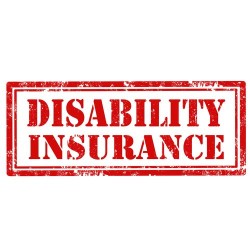 A doctor recently filed a disability insurance lawsuit against Unum Life Insurance Company of America alleging the disability insurance provider denied her claim and refused to pay long-term disability benefits.
A doctor recently filed a disability insurance lawsuit against Unum Life Insurance Company of America alleging the disability insurance provider denied her claim and refused to pay long-term disability benefits.
Plaintiff Melrose A. is a Georgia resident who worked as an emergency room physician with a hospital also located in Georgia. Unum Life Insurance provided the disability insurance policy that was provided to her as part of her employee benefits.
On Aug. 27, 2013, Melrose stopped working due to a disability while she was still covered under her Unum Insurance policy. In her initial filing, Melrose had her application for disability benefits approved and was paid benefits until Nov. 24, 2014.
On Nov. 25, 2014, Melrose received a denial for ongoing long-term disability benefits, with the denial from Unum stating that she could perform her regular work in her occupation despite her medical condition, according to the claim.
Melrose filed an appeal but was denied yet again on Sept. 15, 2015, the claim stated. On this date, a letter from Unum confirmed that she had exhausted her administrative remedies under the plan and stated that she had a right to bring a lawsuit against the company under ERISA (Employee Retirement Income Security Act).
According to the disability insurance lawsuit, Melrose continues to be disabled as she was initially defined by the provisions of the Unum long-term disability plan.
Melrose brought a single claim against Unum stating that the company violated ERISA. The claim noted that Unum’s decision-making process violated ERISA by failing to give Melrose a full and fair review of her claim.
In terms of compensation, Melrose is seeking damages equal to the amount of disability income benefits to which she was entitled through the date of the judgment with pre- and post-judgment interest, future payment of benefits as long as she meets eligibility requirements of being considered disabled, as well as reimbursement for attorney fees and costs.
The Unum Bad Faith Insurance Lawsuit is Case No. 1:16-cv-0005-JRG-SKL in the U.S. District Court for the Eastern District of Tennessee, Chattanooga Division.
Unum Bad Faith Insurance
Unum continues to have bad faith insurance lawsuits filed against the company alleging that it has denied disability benefits to individuals who are eligible for such benefits under the terms of the plan.
Some might even argue that Unum routinely and wrongfully denies such claims that are eligible to be covered under the plan in an effort to avoid its obligation to policyholders. Unwarranted disability claim denial is an action referred to under a claim of bad faith insurance.
If you have been denied disability benefits by your long-term disability insurance provider, you may be able to file a bad faith insurance lawsuit. By filing a lawsuit, you may be able to recover past disability benefits that should have been paid to you and you may be able to receive those benefits in the future if you meet eligibility requirements under the plan.
An Unum bad faith insurance attorney can review your case at no charge and can discuss your legal options with you.
Do YOU have a legal claim? Fill out the form on this page now for a free, immediate, and confidential case evaluation. The bad faith insurance attorneys who work with Top Class Actions will contact you if you qualify to let you know if an individual lawsuit or Unum class action lawsuit is best for you. [In general, Unum bad faith lawsuits are filed individually by each plaintiff and are not class actions.] Hurry — statutes of limitations may apply.
ATTORNEY ADVERTISING
Top Class Actions is a Proud Member of the American Bar Association
LEGAL INFORMATION IS NOT LEGAL ADVICE
Top Class Actions Legal Statement
©2008 – 2025 Top Class Actions® LLC
Various Trademarks held by their respective owners
This website is not intended for viewing or usage by European Union citizens.
Get Help – It’s Free
Join a Free Unum Class Action Lawsuit Investigation
If you were denied a disability claim or had your Unum disability benefits terminated without reason, you may be able to take legal action against the insurer. See if you qualify by filling out the short form below.
An attorney will contact you if you qualify to discuss the details of your potential case at no charge to you.












